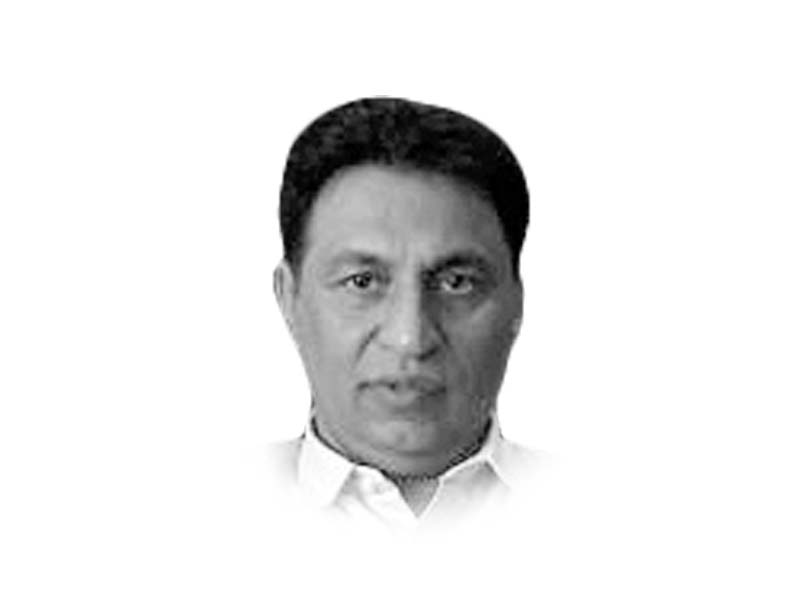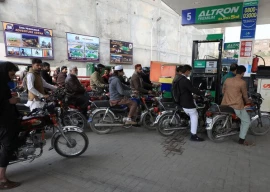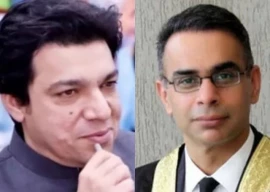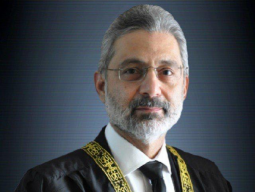
In an Oped page article on 7th January, A FAFEN representative has cast baseless and unfounded aspersions on LG polls held in Karachi and Hyderabad Divisions on 15th January perhaps due to lack of understanding of the delimitation law and demography of Karachi. It’s very much necessary that wrong perception about Local Council polls should be corrected.
After the Completion of tenure of Local governments in Sindh in 2020, certain city based political parties demanded that City of Karachi may be organized into Towns instead of District Municipal Corporations on the pattern of Mushrafff era model of local government and Metropolitan Corporation be further empowered amending the 2013 Local Government Act.
Both the demands of Opposition political parties including PTI, JI, MQM and others were met by the Sindh government after negotiations with them. However, some of them still continued their protests to obtain favorable outcome in polls and one of them boycotted the polls on the pretext of what they called unfair delimitation after the Election Commission of Pakistan had completed the difficult and laborious task of delimitation under section 20, 222 and 223 of the Elections Act, 2017.
The City of Karachi has been organized into 25 Town Municipal Corporations with Metropolitan Corporation at the apex in all the seven districts of Karachi. Similarly, Hyderabad City has been organized into nine Town Municipal Corporations.
Delimitation process of all the 25 Towns of Karachi was carried out by the Election Commission of Pakistan during 2021 and after completion of objections and appeals, it was notified in February 2022.
As soon as the election schedule was announced, some opposition political parties tried to get the polls postponed on one pretext or other and matter was agitated before superior Courts. However, after much delay polls were held peacefully and fairly on 15th January 2023.
Historic win of Pakistan People’s Party in both the Cities of Karachi and Hyderabad raised many eye brows as the City of Karachi has either been controlled by Centre (1948-70) directly or through Establishment supported parties from 1979 to 2020 on the basis of questionable polls and gerrymandering.
In order to ward off any gerrymandering or electoral fraud, ECP had delimited Karachi’s 246 UCS on the basis of population, compactness, contiguity, the factors elaborated in section 20 of the Elections Act, 2017.
Previously, Delimitation of local Councils as well as polls were conducted by provincial government. After intervention of Superior Courts in 2014, this power including the power to hold polls was handed over to ECP. PPP contested all polls on the basis of delimitation effected by its hostile governments. Its first time in history that PPP has contested polls on the basis of delimitation effected by Election Commission of Pakistan.
FAFEN representative in his article has stated that number of votes in certain districts like Korangi is higher than other PPP-won districts. It’s a laughing argument. The delimitation is done on the basis of population and not on the basis of voter lists. In District Malir, where an average population of NA constituency is 6,50,000, has less voters than similar constituency of same population in district South or Central.
The population in 2017 census has increased more in districts Malir, West and East as they have more scope of expansion due to availability of land so the number of Ucs with corresponding population increased in these districts. ECP under section 20 of the Election Act can maintain a population difference of 10% among UCs and if its more than 10% it has to cite reasons. During Mushraff era, the difference in UC populations was more stark and striking.
The area as well as population of one UC can differ from other UC. A closer look at the proportionate population and number of UCS in the seven districts of Karachi would show that number of UCS is largely proportionate to their population in the district. For example, District Malir with population of 1924,346 has 30 UCs whereas District central with population of 2,971,382 has 45 UCs. Similarly, District East with population of 2,875,315 has 43 UCs and Karachi South with a population of 1,769,230 has 26 UCs.
ECP had conducted elaborate exercise of delimitation giving fair opportunity to political parties of filing objections before District Delimitation Committees and appeals before District Delimitation Authorities constituted under Elections Act, 2017 but some parties wanted control of Karachi by hook or by crook and even boycotted polls.
On its own, Pakistan People’s Party though has swept Hyderabad, yet it has fared less in Karachi as compared to Hyderabad. In its three stronghold districts of Malir, South and Keamari (these three districts comprise 85% Land of Karachi) where it has traditionally won, it bagged only 63 UCs out of 88. It won district west with thin majority whereas it fared less in some of its strongholds in District East.
PPP won four out of seven districts and came second in District East. It was likely to sweep five out of seven districts leaving only Central and Korangi where it too won four UCs each. The Pakistan Peoples Party win not only reflects the changing demography of karachi but also its ethnic composition. PPP has largely won districts of Malir, South, Keamari and West where large Sindhi and Baloch population is concentrated.
It’s very hard for the Centre supported parties and their loyalists to digest the win of Pakistan People’s Party as the City has been governed either by center or its planted ethnic or religious parties which have played mayhem in Karachi. The blame for Karachi’s predicament has been laid at the door of Pakistan People’s Party though PPP has never governed Karachi and all the polls of Local government in Karachi were stolen from it through sheer rigging by military governments and establishment.
It would be first time that a secular, democratic, peaceful Federal party would be governing the City of Karachi after Centre unconstitutionally declared Karachi Federal territory in 1948 before the Federation was created under the Constitution.
This mandate of Pakistan People’s Party in Karachi must be accepted by heart as PPP would serve masses of Karachi without any ethnic or religious discrimination perpetuated since long by the Centre or its supported parties. Its good omen for the democratic and progressive people who always yearn for change. It would also herald healthy development for the Federation.
The author is a senior advocate Supreme Court and former advocate general Sindh and tweets @zamirghumro.
Like Opinion & Editorial on Facebook, follow @ETOpEd on Twitter to receive all updates on all our daily pieces.
























1715843823-0/WhatsApp-Image-2024-05-16-at-12-14-16-(1)1715843823-0-270x192.webp)





COMMENTS
Comments are moderated and generally will be posted if they are on-topic and not abusive.
For more information, please see our Comments FAQ